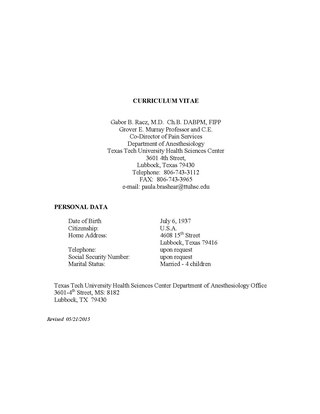Latinity (Latinitas) is proficiency in Latin. The term may also be used to refer to the use of Latinisms or the imitation of Latin style. [1]
Latinity (Latinitas) is proficiency in Latin. The term may also be used to refer to the use of Latinisms or the imitation of Latin style. [1]
A, or a, is the first letter and the first vowel of the Latin alphabet, used in the modern English alphabet, the alphabets of other western European languages and others worldwide. Its name in English is a, plural aes. It is similar in shape to the Ancient Greek letter Alpha, from which it derives. The uppercase version consists of the two slanting sides of a triangle, crossed in the middle by a horizontal bar. The lowercase version can be written in two forms: the double-storey a and single-storey ɑ. The latter is commonly used in handwriting and fonts based on it, especially fonts intended to be read by children, and is also found in italic type.
K, or k, is the eleventh letter in the Latin alphabet, used in the modern English alphabet, the alphabets of other western European languages and others worldwide. Its name in English is kay, plural kays. The letter K usually represents the voiceless velar plosive.
Old English, or Anglo-Saxon, is the earliest recorded form of the English language, spoken in England and southern and eastern Scotland in the early Middle Ages. It developed from the languages brought to Great Britain by Anglo-Saxon settlers in the mid-5th century, and the first Old English literary works date from the mid-7th century. After the Norman conquest of 1066, English was replaced, for a time, by Anglo-Norman as the language of the upper classes. This is regarded as marking the end of the Old English era, since during this period the English language was heavily influenced by Anglo-Norman, developing into a phase known now as Middle English in England and Early Scots in Scotland.

Upsilon or ypsilon is the twentieth letter of the Greek alphabet. In the system of Greek numerals, Υʹ has a value of 400. It is derived from the Phoenician waw .

Ibid. is an abbreviation for the Latin word ibīdem, meaning "in the same place", commonly used in an endnote, footnote, bibliography citation, or scholarly reference to refer to the source cited in the preceding note or list item. This is similar to Idem, literally meaning "the same", abbreviated id., which is commonly used in legal citation.

Alma mater is an allegorical Latin phrase used to proclaim a school that a person has attended or, more usually, from which one has graduated. Alma mater is also a honorific title for various mother goddesses, especially Ceres or Cybele. Later, in Catholicism, it became a title of Mary, mother of Jesus.
Folk etymology – also known as (generative) popular etymology, analogical reformation, (morphological)reanalysis and etymological reinterpretation – is a change in a word or phrase resulting from the replacement of an unfamiliar form by a more familiar one through popular usage. The form or the meaning of an archaic, foreign, or otherwise unfamiliar word is reinterpreted as resembling more familiar words or morphemes.
A syllabus or specification is a document that communicates information about an academic course or class and defines expectations and responsibilities. It is generally an overview or summary of the curriculum. A syllabus may be set out by an examination board or prepared by the tutor or instructor who teaches or controls the course. The word is also used more generally for an abstract or programme of knowledge, and is best known in this sense as referring to two catalogues published by the Catholic Church in 1864 and 1907 condemning certain doctrinal positions.

Despite the various English dialects spoken from country to country and within different regions of the same country, there are only slight regional variations in English orthography, the two most notable variations being British and American spelling. Many of the differences between American and British/Commonwealth English date back to a time before spelling standards were developed. For instance, some spellings seen as "American" today were once commonly used in Britain, and some spellings seen as "British" were once commonly used in the United States.

A Latin Dictionary is a popular English-language lexicographical work of the Latin language, published by Harper and Brothers of New York in 1879 and printed simultaneously in the United Kingdom by Oxford University Press.

The Latin adverb sic inserted after a quoted word or passage indicates that the quoted matter has been transcribed or translated exactly as found in the source text, complete with any erroneous, archaic, or otherwise nonstandard spelling, punctuation, or grammar. It also applies to any surprising assertion, faulty reasoning, or other matter that might be interpreted as an error of transcription.
Floruit denotes a date or period during which a person was known to have been alive or active. In English, the unabbreviated word may also be used as a noun indicating the time when someone flourished.
Oxford spelling is a spelling standard, named after its use by the University of Oxford, that prescribes the use of British spelling in combination with the suffix -ize in words like realize and organization instead of -ise endings.

The Oxford Latin Dictionary is the standard English lexicon of Classical Latin, compiled from sources written before AD 200. Begun in 1933, it was published in fascicles between 1968 and 1982; a lightly revised second edition was released in 2012.

In English, a curriculum vitae is a short written summary of a person's career, qualifications, and education. This is the most common usage in British English. In North America, the term résumé is used, referring to a short career summary.

Alumni are former students or graduates of a school, college, or university. The feminine plural alumnae is sometimes used for groups of women, and alums as a gender-neutral alternative. The word comes from Latin, meaning nurslings, pupils or foster children, derived from alere "to nourish".
A restaurateur is a person who opens and runs restaurants professionally. Although over time the term has come to describe any person who owns a restaurant, traditionally it refers to a highly skilled professional who is proficient in all aspects of the restaurant business.